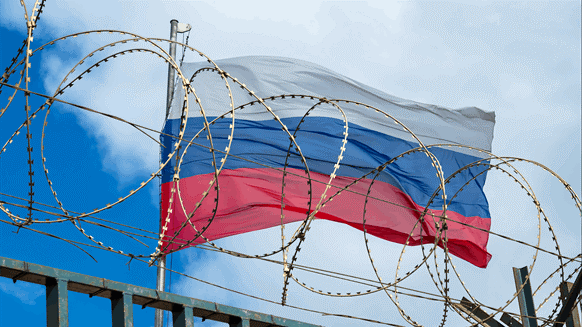 |
| Sanctions against Russia: Massive counter-attack from the West, 'hit by a fatal blow', Moscow also finds it difficult to defend. (Source: economicsobservatory) |
Economic "wounds"
The European Union (EU), the United States, the United Kingdom and many other countries have introduced several rounds of sweeping sanctions, one on top of the other. The sanctions have taken effect, hampering many industries and leading to a widening budget deficit in Russia.
In fact, the series of international sanctions, though considered to be unprecedentedly harsh, are clearly not enough to subdue Russia and prevent President Putin from implementing his military plans. However, it cannot be said that the series of sanctions on the Russian economy are ineffective.
In fact, these measures have had a negative impact on the economy and on the funding for Russia’s special military operation in Ukraine (which began in February 2022). Restrictions on exports to Russia have led to a sharp decline – and in some cases, a collapse – in production in many industrial sectors.
The price cap on seaborne oil imports from Russia when sanctions were first introduced in December 2022 – which had a major negative impact on the country’s federal tax revenues – is significant, as up to 40% of Russia’s federal tax revenues came from the energy sector before the conflict.
So the economic counter-offensive from the West seems to be working for the Russian economy – but to what extent?
The United States and its European allies have imposed restrictions on a wide range of exports to Russia, including high-tech goods and components, which could hurt the Russian economy. Over the past 30 years, parts of the Russian economy have become closely integrated with the rest of the world . The country’s manufacturing sector relies heavily on a “steady flow” of parts and components from abroad.
The conflict has changed all that. Many key components are now banned from export, financial sanctions have made trade more difficult or impossible, and many foreign companies have left the Russian market altogether.
All of these developments can be seen clearly in the automotive sector. Almost all global automakers were operating in Russia before the Russia-Ukraine conflict, serving mainly the large Russian domestic market.
But by the spring of 2022, car production had fallen by almost 90% compared to pre-conflict levels, and has only partially recovered so far. In the first quarter of 2023, car production was less than 25% of pre-Russia-Ukraine levels. All Western car brands have left the market, of the 14 remaining car brands in Russia, 3 are Russian and 11 are Chinese.
The auto industry is not the only one hit by Western sanctions. The same is true for electronics and machinery. For example, Russia produces far fewer railway cars, televisions, elevators and fiber optic cables than before, while imports of Chinese cars have soared.
However, overall manufacturing output has not fallen much. In the first two months of 2023, manufacturing activity fell by just 1.7% compared to the same period last year. Many sectors whose products are used in military conflicts – such as metallurgy, textiles and medical goods – have seen large increases in output.
The Russian economy remains quite confident because it possesses abundant resources and the ability to maintain relatively simple manufactured goods production, even in the face of the harshest trade restrictions.
As powerful as the "oil price blow"
So how has the oil price cap affected Russia's state finances?
Since the conflict, global energy prices have skyrocketed. Many European buyers have actively reduced their purchases of Russian crude oil and petroleum products.
And in the summer of 2022, the flow of natural gas from Russia to EU countries stopped because European energy companies refused to pay for their gas in rubles.
These combined measures have significantly reduced Russia’s export and tax revenues. However, the far more serious consequence has been the decision by the Group of Seven (G7) leading industrialized nations to cap the price of seaborne oil imports from Russia at $60 per barrel, which will come into effect on December 5, 2022. At the same time, EU countries have imposed an additional ban on imports of Russian crude oil transported by sea.
A similar ban on Russian oil products is due to come into effect on February 5, 2023, although the contribution of crude oil to the Russian budget has always been much larger than that of oil products.
The country’s federal budget deficit is expected to reach 2.3% of GDP in 2022. The deficit will widen significantly later in the year as the government spends more on the conflict in Ukraine. In addition, lower oil prices and weaker overall economic activity have led to a sharp drop in tax revenues.
Meanwhile, government spending continues to grow very rapidly, especially in January and February 2023. In the first quarter of 2023, nominal federal government spending increased 38% year-on-year.
On the other hand, the G7 oil price ceiling and the EU oil import ban had a significant impact on Russia's tax revenues. Overall, nominal tax revenues fell by 15% in the first quarter.
Revenues from the energy sector were hit hard - down 43% compared to the first quarter of 2022. The Russian federal budget deficit reached 2,400 billion rubles in the first quarter of 2023 - equivalent to more than half the budget deficit for the whole year.
In theory, in seasonal spending patterns, the state deficit is usually largest in the last quarter of the year. Russia has now finalized the formula for determining how much tax oil companies will have to pay to increase energy taxes from this point. In addition, many state-owned companies have had to pay dividends in excess of profits…
Those are the economic problems Russia is facing, so it can be said that the conflict, followed by sanctions, has had a rather negative impact on Russia's state finances.
Without significant changes in spending plans, the Russian federal government budget deficit could easily reach 4-5% of GDP this year.
This is not a disaster for Putin’s government, however, Moscow has the resources to fill the gaps. But the longer the military conflict and sanctions last, the more difficult the financial situation will become, especially when a third of the budget has to be allocated to the military and internal security.
In theory, this effect would be cumulative over time. The fighting looks set to continue for months to come, but increasingly, the grip of economic sanctions appears to be the “main offensive” of Western policy toward Russia.
Source


![[Photo] Hanoi morning of October 1: Prolonged flooding, people wade to work](https://vphoto.vietnam.vn/thumb/1200x675/vietnam/resource/IMAGE/2025/10/1/189be28938e3493fa26b2938efa2059e)
![[Photo] Keep your warehouse safe in all situations](https://vphoto.vietnam.vn/thumb/1200x675/vietnam/resource/IMAGE/2025/10/1/3eb4eceafe68497989865e7faa4e4d0e)



![[Photo] President of the Cuban National Assembly visits President Ho Chi Minh's Mausoleum](https://vphoto.vietnam.vn/thumb/1200x675/vietnam/resource/IMAGE/2025/10/1/39f1142310fc4dae9e3de4fcc9ac2ed0)
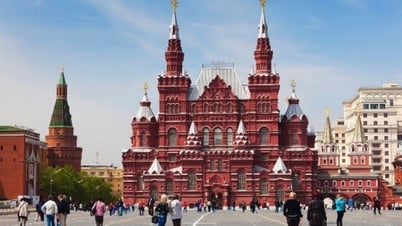
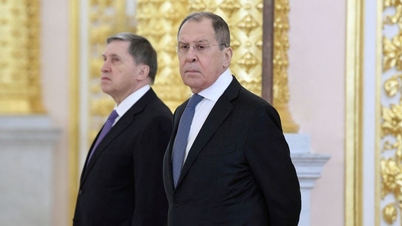

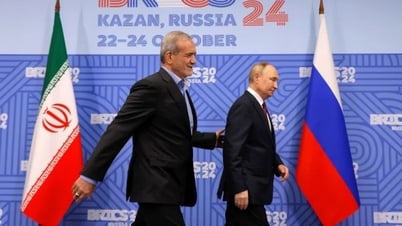












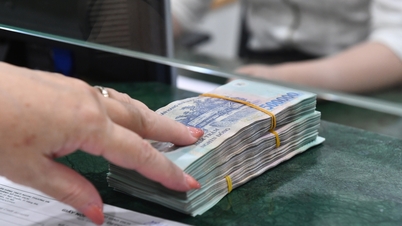






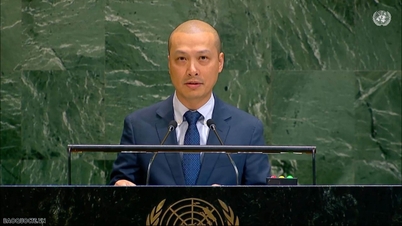

































































Comment (0)